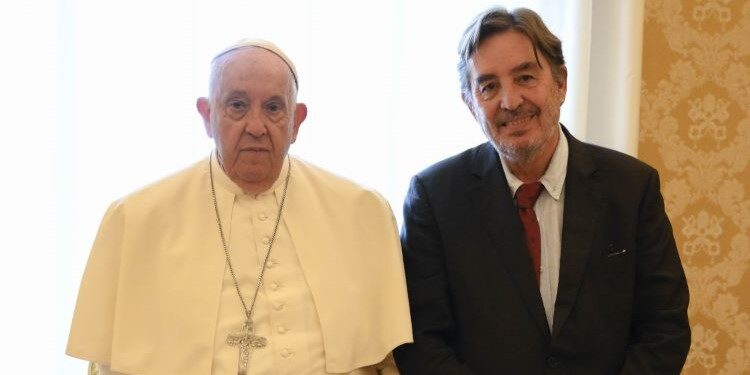The Diplomat
Yesterday, Pope Francis received in audience the director of the Instituto Cervantes, Luis García Montero, before whom he highlighted the importance of “defending Spanish”.
García Montero was received in a private audience by Jorge Mario Bergoglio in the Vatican Library, within the framework of his working trip to Rome which included, the day before, the signing of the first collaboration agreement between the Instituto Cervantes and its Italian “counterpart”, the Società Dante Alighieri.
During the meeting, according to a press release from Cervantes, Bergoglio, who was born in Buenos Aires, stressed the importance of “defending Spanish” and added, jokingly, that the institution should “teach people to speak better than we Argentines do.”
During the half-hour audience, the Pope confessed to García Montero that when he was a Literature teacher at a school in Santa Fe (Argentina), the poems of Federico García Lorca helped him to get his students interested in the subject. In particular, “La casada infiel,” a romance with a “spicy tone,” the pontiff said with amusement.
The director of the Instituto Cervantes presented the Pope with two works published by the institution: ‘Grito hacia Roma’, a poem by García Lorca written in New York in the 1930s and in which he anticipated the horror of what was already perceived as World War II, and ‘Más flexibles que el mar son las palabras’, an anthology of speeches by García Montero published on the occasion of the last International Congress of the Spanish Language in 2023 and which covers the situation of Spanish throughout the world.
Also when he was a teacher, in 1965, Bergoglio managed to get Jorge Luis Borges —“a great guy”, according to his words— to take a bus and go visit his students. With them he did a narrative workshop from which a book of short stories came out with a prologue by the author of ‘El Aleph’ and which the Cervantes Institute will publish next year —when 60 years have passed since that moment— together with the letter that the Pope wrote to Borges in defense of Literature in education. “You have full permission to use my texts as you wish and as you consider most useful,” concluded Francis.






